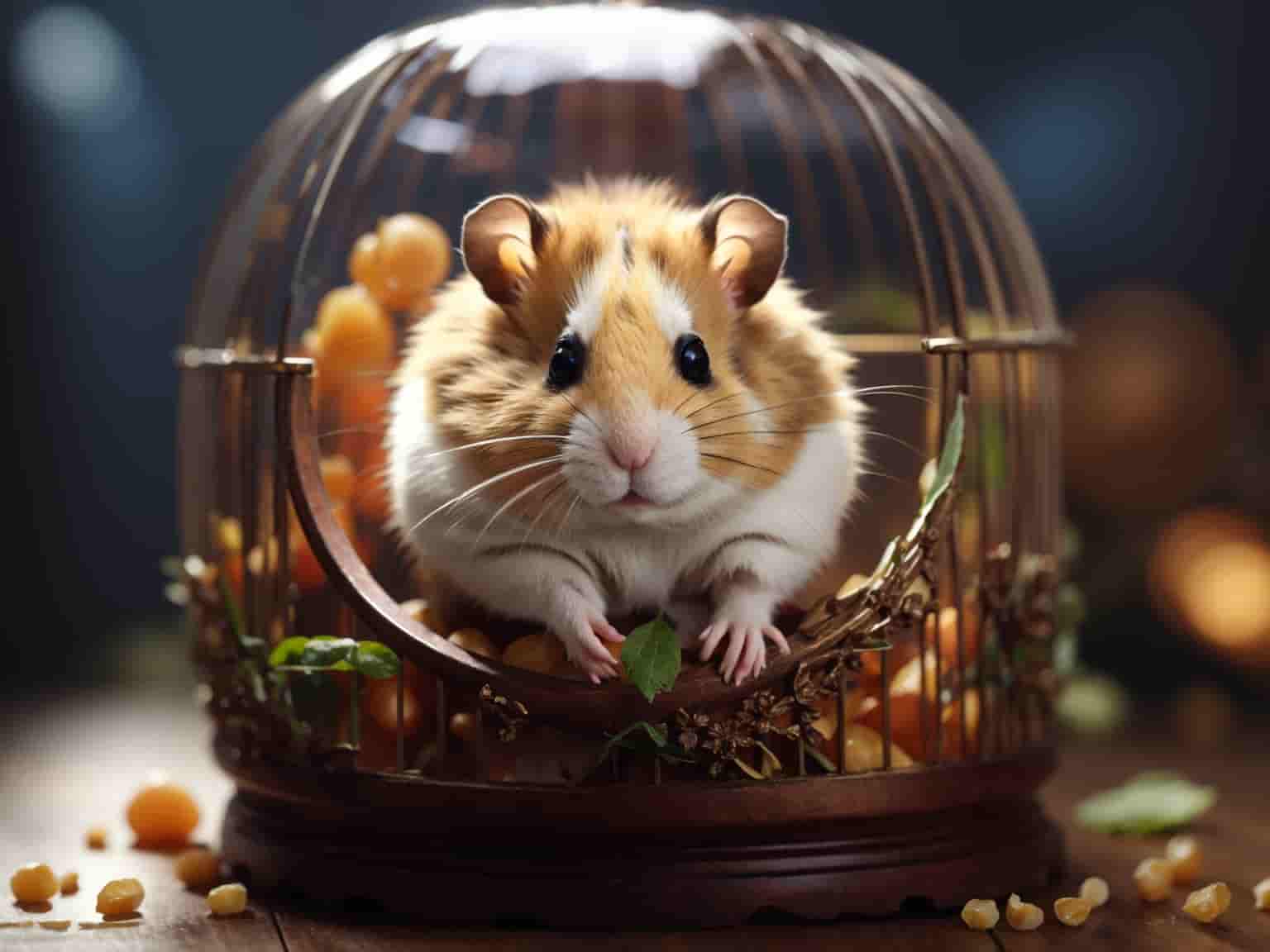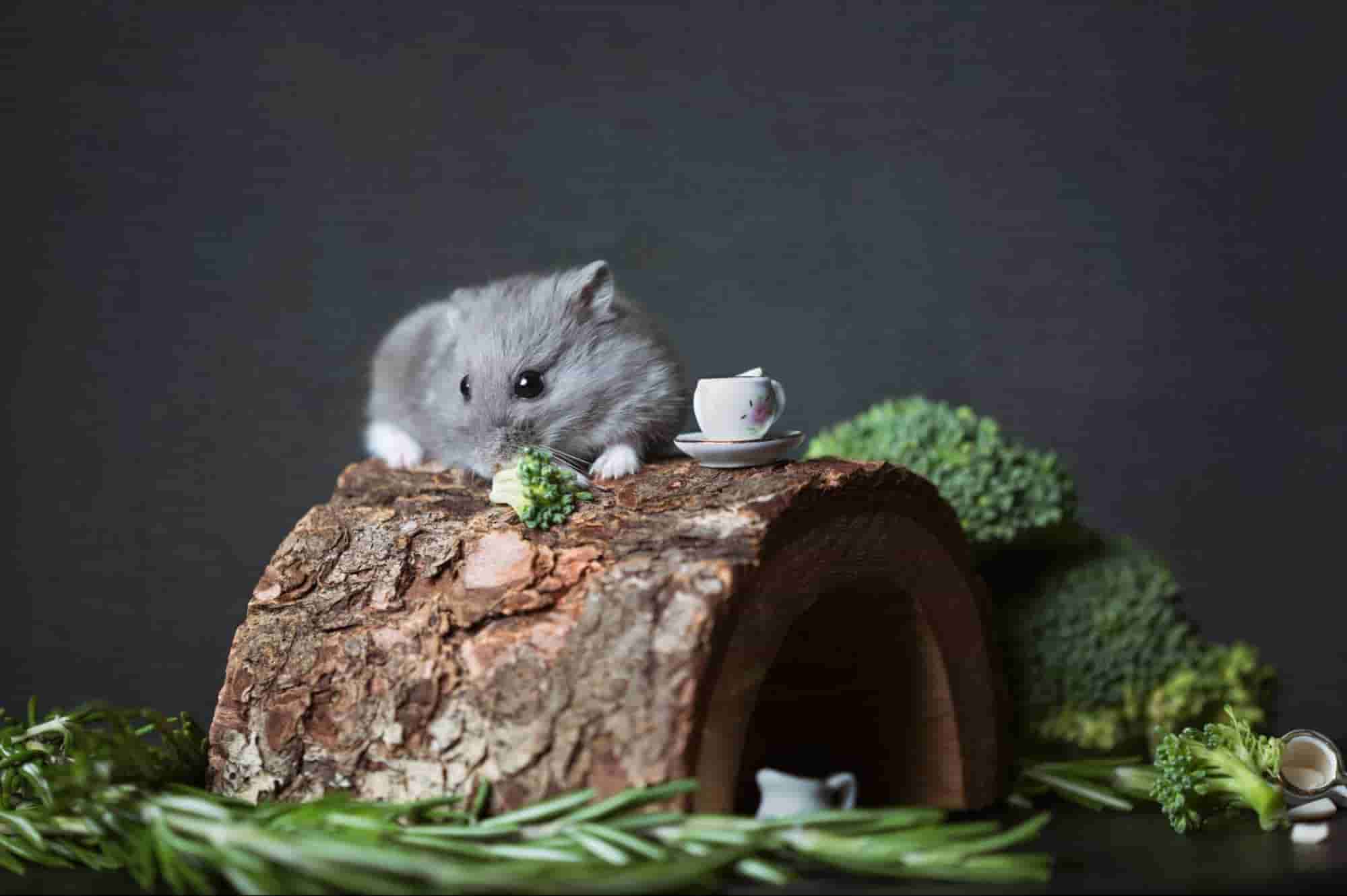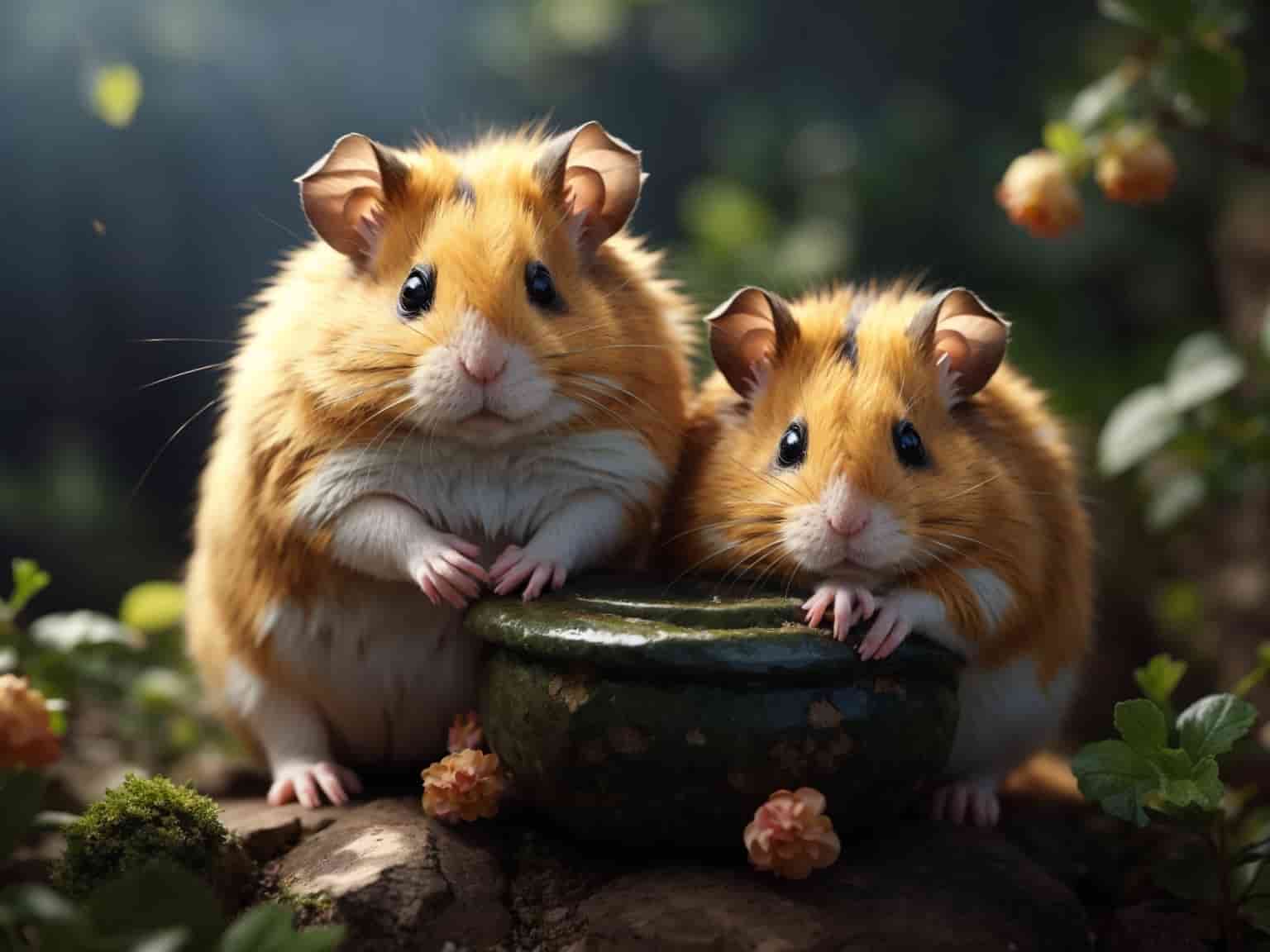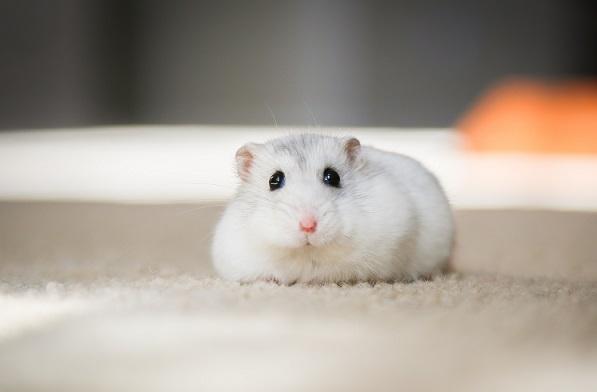As an animal enthusiast, I am captivated by the charming world of Djungarian hamsters.
These endearing little mammals, with their distinctive physical features and curious habits, are known to win hearts easily. Commonly known as “winter white dwarf hamsters” or “Siberian hamsters,” Djungarian hamsters are small rodents with endearing personalities.
They’re sought-after pets worldwide due to their compact size and fascinating lifestyle among other adorable traits.
If you’re interested in learning more about these adorable critters or are considering owning one yourself, scroll on to discover more about their charm and quirks.
Overview of Djungarian Hamsters as a Dwarf Species
Starting with a brief overview, Djungarian hamsters are one of the many species in the dwarf hamster family. Their unique traits set them apart, making them a favorite among pet owners worldwide.
Physical Characteristics and Appearance
Don’t let the small size fool you! Djungarian hamsters are packed with charm. They are small and round, typically reaching a size of 3-4 inches. They have short, plush fur that changes color based on the season.
Intriguingly, sunfire Djungarian hamsters have a delightful golden hue that shines brightly under sunlight.
Natural Habitat and Origin
Hailing from the harsh environments of Siberia, Mongolia, and Northeast China, Djungarian hamsters have adapted to colder temperatures. Their natural habitat consists of semi-desert regions, where they burrow to protect themselves from predators and weather extremes.
Djungarian Hamster Care and Housing
Next up is housing and care. A well-designed habitat is essential for your hamster’s health and happiness.
Selecting the Right Cage for Djungarian Hamsters

Your hamster’s new home should be spacious, with plenty of room for play, rest, and food storage. Wire cages with a deep plastic base are perfect to meet these needs.
Suitable Bedding and Nesting Materials
Paper or wood-pulp-based beddings are recommended. They are dust-free and super absorbent. As for nesting materials, unscented tissue paper works perfectly.
Ideal Temperature and Humidity Levels
Given their natural habitat, Djungarian hamsters thrive at lower temperatures, around 20-23°C (68-73°F), with a moderate humidity level of around 40-60%.
Proper Lighting and Photoperiod
Having adapted to the short days in winter and long days in summer, Djungarian hamsters require a proper light-dark cycle. Generally, a 14-hour light and 10-hour dark cycle works best.
Nutrition and Diet for Djungarian Hamsters
A balanced diet is essential for your hamster’s health and well-being.
Nutritional Requirements for a Balanced Diet
Djungarian hamsters require a mix of proteins, fats, and carbohydrates. High-quality hamster pellets supplemented with fresh foods can meet these needs.
Hamster Food Selection and Recommendations
Choose a premium hamster mix that is rich in whole grains, seeds, and a decent amount of protein.
Fresh Fruits, Vegetables, and Treats for Variety

Supplement their diet with fresh fruits and vegetables such as apples, broccoli, and carrots. Treats can also be given but in moderation.
Hydration and Water Source
Ensure your hamster has constant access to fresh and clean water, preferably in a drip-feed bottle, to prevent contamination.
Enrichment and Exercise for Djungarian Hamsters
Enrichment and exercise are crucial to keep your Djungarian hamster happy and healthy.
Providing Toys and Chewables for Mental Stimulation
Provide a variety of toys, such as tunnels, bridges, and chewable items. It helps keep them engaged and contributes to dental health.
Hamster Wheel and Playtime Activities
A sturdy, solid wheel is a must-have for hamsters. Interactive playtime outside the cage can also be fun and beneficial.
Creating a Safe and Engaging Play Area
Create a play area with climbing opportunities and hiding spaces. Make sure it’s safe and free from potential hazards.
Grooming and Hygiene Practices for Djungarian Hamsters

Keeping your hamster groomed and clean contributes to their overall well-being.
Coat Brushing and Maintenance
Djungarian hamsters groom themselves, but occasional gentle brushing can help keep their coat in top condition.
Nail Trimming and Dental Care
Nails may need trimming if they get too long. Chewable toys should take care of their dental needs.
Bathing Guidelines and Frequency
Djungarian hamsters are self-grooming, making regular baths unnecessary and potentially harmful. Instead, provide a sand bath, a natural grooming method for them.
Place chinchilla sand (not dust!) in a shallow dish twice a week, and your hamster will enjoy a fun, healthy, and dust-free clean-up.
Djungarian Hamster Health and Common Issues
Keeping an eye on your Djungarian hamster’s health is vital to ensure they live a long, happy life.
Regular Veterinary Check-ups and Vaccinations
Regular veterinary check-ups for Djungarian hamsters are crucial in identifying any health issues early. These usually involve a general examination of weight, teeth, fur, and overall well-being. Interestingly, unlike many pets, Djungarian hamsters typically don’t require vaccinations.
Nonetheless, each visit to the vet is a step towards ensuring your furry friend lives a healthy, comfortable life.
Signs of Illness and Emergency Care
In the world of Djungarian hamsters, various signs can hint at a health issue. Being aware of these signs can aid in providing swift medical attention to your little companion.
Loss of Appetite or Drastic Changes in Eating Habits
An unexpected shift in dietary habits, such as decreased appetite or sudden overeating, can signal health concerns. Regularly monitor your hamster’s food intake to catch such signs early.
Lethargy and Unusual Decrease in Activity Level
If your energetic Djungarian seems unusually sluggish or inactive, it’s cause for concern. Lethargy can be a symptom of underlying health issues, warranting an immediate vet visit.
Rapid Weight Loss or Excessive Weight Gain
Dramatic weight changes, either loss or gain, could hint at serious health conditions, ranging from diabetes to malnutrition. Regular weigh-ins can help track these changes effectively.
Abnormal Discharge from Eyes, Nose, or Ears
Discharge from the eyes, nose, or ears, especially if it’s cloudy or colored, can indicate infections. It’s crucial to seek prompt veterinary care in such instances.
Labored Breathing or Wheezing Sounds
If you notice difficulty in breathing or wheezing sounds, your hamster may have respiratory issues, potentially a serious condition. Immediate vet consultation is necessary.
Swelling or Bumps on the Body
Unusual swellings, lumps, or bumps on your hamster’s body could suggest tumors or cysts. Take your time getting these checked out by a professional.
Changes in Fur or Skin Condition
Changes in skin texture, color, or the condition of your hamster’s fur can be a sign of skin diseases. Maintaining grooming routines and consulting a vet if abnormalities occur is essential.
Hair Loss or Bald Patches
Hair loss or bald patches could indicate skin conditions, parasites, or stress-related issues. A vet can diagnose the underlying cause and suggest suitable treatment.
Sores, Cuts, or Wounds
Open sores, cuts, or wounds should be addressed immediately. Besides causing discomfort, they can also lead to infections if left untreated.
Behavioral Changes, Aggression, or Excessive Hiding
Sudden behavioral changes, increased aggression, or excessive hiding are signs of stress, illness, or discomfort. Continuously monitor your hamster’s behavior closely, seeking veterinary guidance when necessary.
Proper Handling Techniques
Handling your Djungarian hamster requires a gentle touch. Here are some steps:
- Always wash your hands before handling them.
- Approach them slowly, without sudden movements.
- Lift them from below, offering your hand as a platform.
- Hold them gently but firmly to prevent falls.
- Never pick them up by their tail, as it can cause injury.
Breeding and Reproduction of Djungarian Hamsters
Breeding Djungarian hamsters can be a rewarding experience but requires responsibility and care.
Caring for Pregnant Hamsters and Newborns
Pregnant hamsters need additional care, with increased nutrition and a peaceful environment. The newborns should not be disturbed for the first two weeks.
Responsible Breeding Practices
Always ensure that you’re prepared for the commitment of raising hamsters before breeding. And remember, breeding should only be done if you have suitable homes arranged for the offspring.
Conclusion
Navigating the intriguing world of Djungarian hamsters is an adventure filled with endearing moments and rewarding experiences. These small, dynamic creatures are packed with character, making them an absolute joy to have around.
Understanding their needs, from diet to habitat, from grooming to health, is fundamental to providing them with a happy, healthy life. So, the next time someone asks, “Are Djungarian hamsters friendly?” you can confidently reply, “Absolutely, and they are one of the most enchanting pets you’ll ever come across!”
So, welcome a Djungarian into your home, and you’ll be mesmerized by the love and laughter they bring.
FAQs
What is the average Djungarian hamster lifespan?
The average Djungarian hamster lifespan is between 1.5 to 2 years on average, but it can live up to 3 years with excellent care.
Are Djungarian hamsters friendly?
Djungarian hamsters are generally friendly and sociable, making them ideal for pet owners, but individual temperaments can vary.
How to tell if my Djungarian hamster is sick?
Common signs of illness in Djungarian hamsters include changes in appetite, lethargy, weight fluctuations, abnormal discharges, respiratory issues, physical abnormalities, and changes in behavior.
How to care for a sunfire Djungarian hamster?
Sunfire Djungarian hamsters need a comfortable cage with bedding, a good diet, fresh water, and plenty of exercise. They also love toys and activities that keep their minds active.
Alina Hartley is a small-town girl with a ginormous love of bearded dragons. It all started with Winchester, a baby bearded who was abandoned at the shelter by his former owners because of a birth defect that caused one front leg to be shorter than the other. Alina originally went to the shelter looking for a guinea pig, but one look at Winchester and it was love at first sight. From that day on, Alina has dedicated her life to learning everything she can about bearded dragons. She loves helping new beardie parents start their incredible journey with these magnificent reptiles.
Follow her on:
LINKEDIN
TWITTER.
Read her latest articles HERE
Learn more about her HERE.

